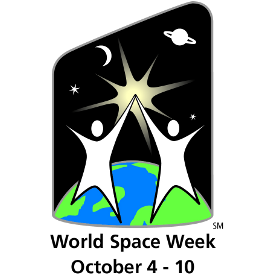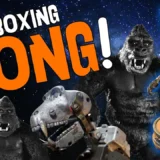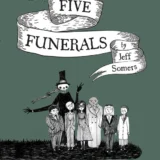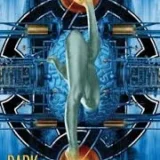Okay, the movie Man of Steel has already been addressed a few times here at Amazing Stories, including an unfavorable review by Paul Cook and an astute observation of the “trivialization of women’s roles” in such films by Alex Kane. I have not seen the movie, but as a parent of impressionable younglings growing up in the fandom, odds are pretty good I will be “influenced” to do so in the near future. But as a literary critic, I selfishly admit that I often enjoy book versions of movies. Why? It is because novelizations allow me to absorb the author’s allusion of the story rather than be distracted by the illusion of the Hollywood imagery.
We can spend all day comparing the old school comic’s Superman to the flashy over the top hero images expected of today. But in the end, readers want something new and refreshing.

Titan Book’s novelization of the new Superman movie Man of Steel by Greg Cox is a book looking for an identity. Despite a few confusing moments, it was still a fun read and it did stir my curiosity about the film (which means it will take minimal arm twisting from the kids to get me to see it). The author has an obvious obligation to remain loyal to the script while remaining faithful to the character created long ago by Jerry Siegel and Joe Shuster. And this seems to be the crux of the conflict.
One movie aspect that does not translate well in this particular case is back-story allusion. Timestamps always help. But jumping back and forth without a time of reference is always a tricky thing in books. In movies, we see the guy is younger or older and we get it. But in books, we don’t always get the hint of the shift in time or space and it takes a few paragraphs (or in some cases pages) to get caught back up. Having a reader say, “Oh, I see where we are now,” can become tedious.
Movies based on books have a distinct difference because the literary perception does not always translate to film. More often than not, books based on film tightly follow the script because of studio or production obligations. Literary fluff is added to fill in the emotional aspect the reader misses without the screen presence. But this does not necessarily always work.
The unreliable narrator also raises its untrustworthy head a few times here in Man of Steel. The vague imagery of a shadowy figure, a guy concealing his face, or a dark figure sitting in a pew is assumed to be Superman/Kent. Is it such a detriment to the story to just ay who it is? When writers lean on this technique, the chance of alienating readers through mistrust is dangerous. Luckily, in this case it is obvious that Cox only wants to distract the readers rather than deceive them and the unreliability is accepted.
One of the more prominent aspects of Man of Steel is the author’s allusion to the classic Superman lore. Perhaps younger readers or someone who has never heard of Superman may dismiss these, but to me and the average member of fandom, it can be quite distracting. It is a refusal to let go of some of the clichéd aspects from various other outlets or productions over the years. Does the description “…landing on the other side in a single bound” ring a bell? Did the author just say that or am I listening to an old radio broadcast from the 40’s? We also see Superman “launched himself up, up, and away.” Yes, this is in the book too. Perhaps the most deplorable line is Lois thinking to herself, “This looks like a job for Superman.” All of these were just character thoughts, so I do not know if they came across on the screen version. Maybe the author believes only true nerds and fans of the original Superman stories will be reading this book.
It’s not a bad book. In fact, Man of Steel is darn entertaining. The problems all stem from the “script” aspect. Greg Cox obviously knows his way around novelizations. After all, he has written many successful books including those based on films such as: The Dark Knight Rises (a New York Times Bestseller), Ghost Rider, Underworld, and Daredevil. I’d love to see what the author would have come up with if he didn’t have to follow the screenplay. Oops, that means the movie would have to be based on the book, and we all know how THOSE usually turn out.









